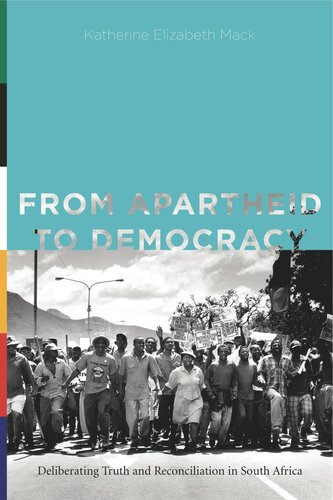

Most ebook files are in PDF format, so you can easily read them using various software such as Foxit Reader or directly on the Google Chrome browser.
Some ebook files are released by publishers in other formats such as .awz, .mobi, .epub, .fb2, etc. You may need to install specific software to read these formats on mobile/PC, such as Calibre.
Please read the tutorial at this link: https://ebookbell.com/faq
We offer FREE conversion to the popular formats you request; however, this may take some time. Therefore, right after payment, please email us, and we will try to provide the service as quickly as possible.
For some exceptional file formats or broken links (if any), please refrain from opening any disputes. Instead, email us first, and we will try to assist within a maximum of 6 hours.
EbookBell Team

0.0
0 reviewsSouth Africa’s Truth and Reconciliation Commission (TRC) hearings can be considered one of the most significant rhetorical events of the late twentieth century. The TRC called language into action, tasking it with promoting understanding among a divided people and facilitating the construction of South Africa’s new democracy. Other books on the TRC and deliberative rhetoric in contemporary South Africa emphasize the achievement of reconciliation during and in the immediate aftermath of the transition from apartheid. From Apartheid to Democracy, in contrast, considers the varied, complex, and enduring effects of the Commission’s rhetorical wager. It is the first book-length study to analyze the TRC through such a lens. Katherine Elizabeth Mack focuses on the dissension and negotiations over difference provoked by the Commission’s process, especially its public airing of victims’ and perpetrators’ truths. She tracks agonistic deliberation (evidenced in the TRC’s public hearings) into works of fiction and photography that extend and challenge the Commission’s assumptions about truth, healing, and reconciliation. Ultimately, Mack demonstrates that while the TRC may not have achieved all of its political goals, its very existence generated valuable deliberation within and beyond its official process.